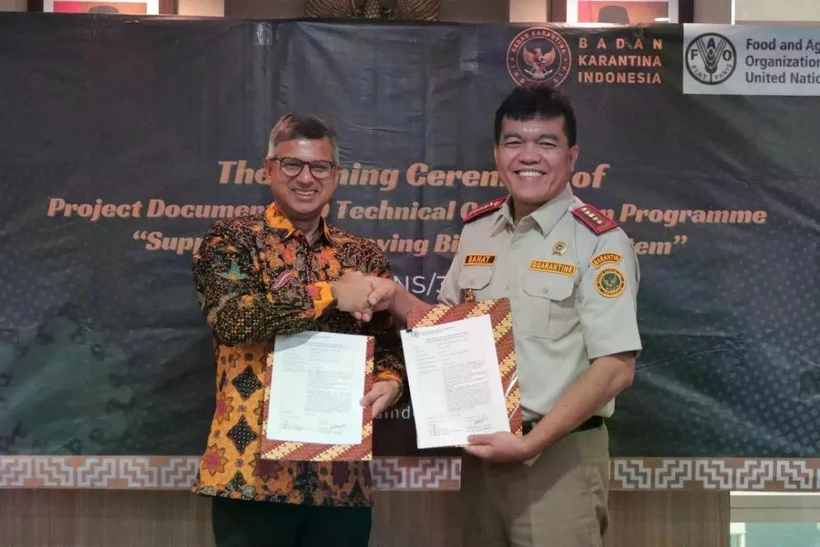Jakarta (VNA) - Indonesia's Quarantine Authority (Barantin) and the UN's Food and Agriculture Organisation (FAO) have announced the successful completion of the Technical Cooperation Programme (TCP) project aimed at strengthening Indonesia’s biosecurity system.
Barantin head Sahat M. Panggabean emphasised the importance of implementing robust biosecurity measures to address the growing threats posed by pests and diseases, which present serious risks to public health and the economy.
He noted that with FAO’s support, Barantin has made significant strides in enhancing the agency’s capacity to address biosecurity threats and protect natural resources and livelihoods.
Panggabean also called on all stakeholders, including the public, government, and industry, to unite in supporting national biosecurity initiatives and strengthening quarantine measures for greater effectiveness.
Meanwhile, FAO Representative for Indonesia and Timor-Leste, Rajendra Aryal, praised the project's completion, calling it a milestone in Indonesia’s efforts to enhance its biosecurity system.
“Through collective efforts, we can build a resilient and sustainable biosecurity system that protects Indonesia’s agriculture and livestock for future generations,” Aryal stated as cited by Indonesia’s Antara news agency, adding that the FAO remains committed to providing further assistance and expertise to Indonesia.
The two-year TCP project, initiated by Barantin and the FAO, focused on reinforcing decontamination measures, traceability systems, and laboratory diagnostics to improve disease prevention, detection, and management.
Key biosecurity gaps identified during the project led to enhanced quarantine processes, improved disease monitoring, and strengthened traceability systems to mitigate outbreak risks.
Additionally, new decontamination guidelines were established to improve the safety of animal movement, along with a roadmap for animal feed traceability to ensure its quality and safety./.




























